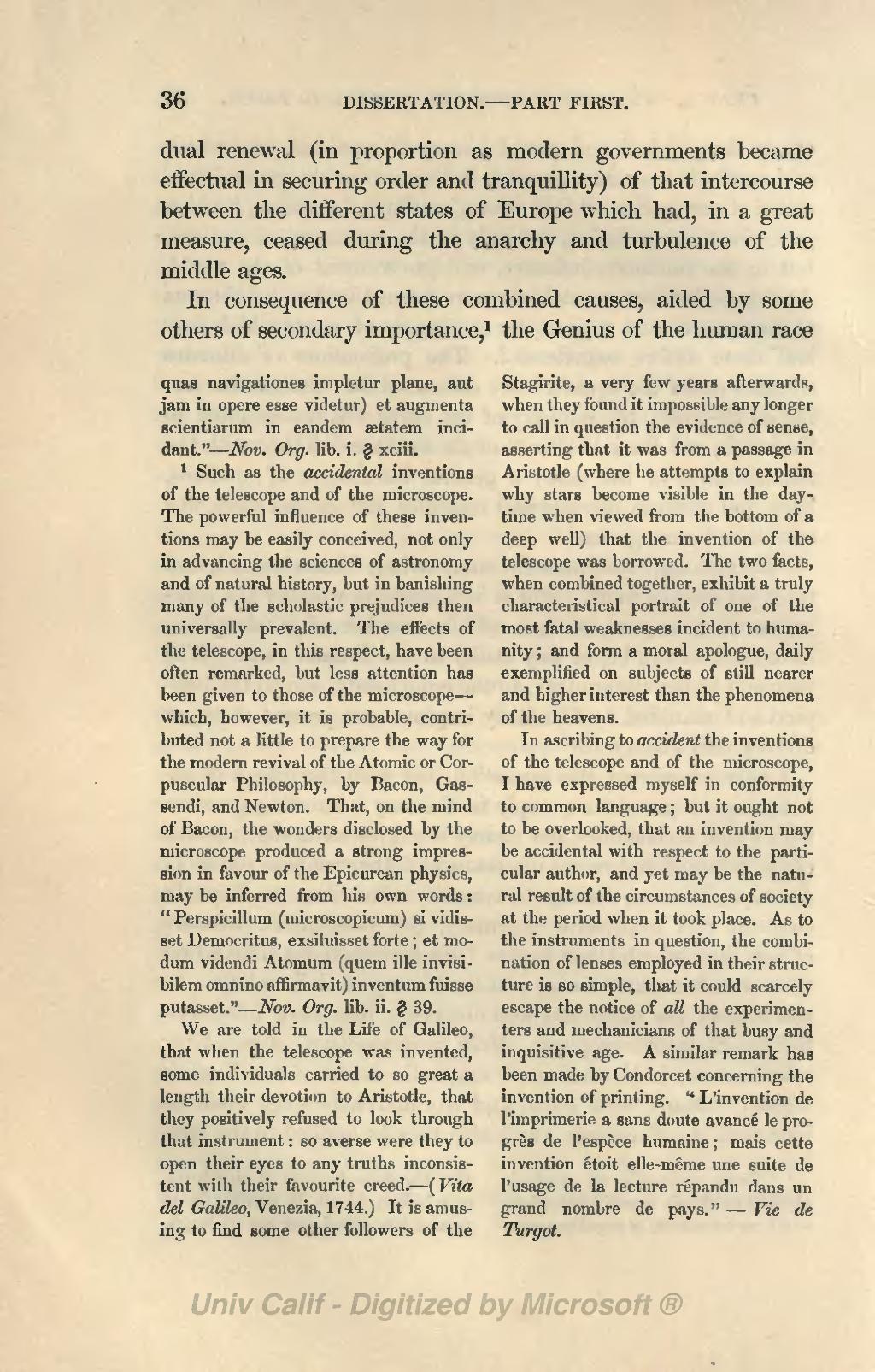36
DISSERTATION.—PART FIRST.
dual renewal (in proportion as modern governments became effectual in securing order and tranquillity) of that intercourse between the different states of Europe which had, in a great measure, ceased during the anarchy and turbulence of the middle ages.
In consequence of these combined causes, aided by some others of secondary importance,[1] the Genius of the human race
- ↑ Such as the accidental inventions of the telescope and of the microscope. The powerful influence of these inventions may be easily conceived, not only in advancing the sciences of astronomy and of natural history, but in banishing many of the scholastic prejudices then universally prevalent. The effects of the telescope, in this respect, have been often remarked, but less attention has been given to those of the microscope—which, however, it is probable, contributed not a little to prepare to the way for the modern revival of the Atomic or Corpuscular Philosophy, by Bacon, Gassendi, and Newton. That, on the mind of Bacon, the wonders disclosed by the microphone produced a strong impression in favour of the Epicurean physics, may be inferred from his own words: "Perspicillium (microscopicum) si vidisset Democritus, exsiluisset forte; et modum videndi Atomum (quem ille invisibilem omnino affirmavit) inventum fuisse putasset."—Nov. Org. lib. § 39.
We are told in the Life of Galileo, that when the telescope was invented, some individuals carried to so great a length their devotion to Aristotle, that they positively refused to look through that instrument: so averse were they to open their eyes to any truths inconsistent with their favourite creed.—(Vital del Galileo, Venezia, 1744.) It is amusing to find some other followers of the Stagirite, a very few years afterwards, when they found it impossible any longer to call in question the evidence of sense, asserting that it was from a passage in Aristotle (where he attempts to explain why stars become visible in the daytime when viewed from the bottom of a deep well) that the invention of the telescope was borrowed. The two facts, when combined together, exhibit a truly characteristical portrait of one of the most fatal weaknesses incident to humanity; and form a moral apalogue, daily exemplified on subjects of still nearer and higher interest than the phenomena of the heavens.
In ascribing to accident the inventions of the telescope and of the microscope, I have expressed myself in conformity to common language; but it ought not to be overlooked, that an invention may be accidental with respect to the particular author, and yet may be the natural result of the circumstances of society at the period when it took place. As to the instruments in question, the combination of lenses employed in their structure is so simple, that it could scarcely escape the notice of all the experimenters and mechanicians of that busy and inquisitive age. A similar remark has been made by Condorcet concerning the invention of printing. "L'invention de l'imprimiere a sans doute avancé le progrès de l'espèce humaine; mais cette invention étoit elle-même dune suite de l'usage de la lecture répandu dans un grand nombre de pays."—Vie de Turgot.
